 EDITOR'S PICK
EDITOR'S PICK
White House Is Trying To Prop Up Coal, Oil, And Gas - But The Economics Of Fossil Fuel Are Failing
24 Jul 2025 | Synopsis
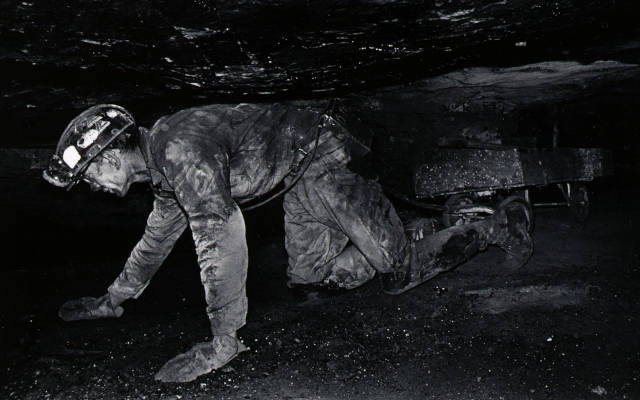 Since launching his second presidential term, Donald Trump has taken aggressive steps to re-energize the U.S. fossil fuel sector—reviving coal plants, approving pipelines, expanding mining leases, and slashing renewable energy incentives. Yet a recent report from the International Renewable Energy Agency (IRENA) confirms that renewables remain dramatically cheaper and more efficient than coal, oil, or gas-challenging the economic logic behind the fossil-fuel revival."
Since launching his second presidential term, Donald Trump has taken aggressive steps to re-energize the U.S. fossil fuel sector—reviving coal plants, approving pipelines, expanding mining leases, and slashing renewable energy incentives. Yet a recent report from the International Renewable Energy Agency (IRENA) confirms that renewables remain dramatically cheaper and more efficient than coal, oil, or gas-challenging the economic logic behind the fossil-fuel revival."
Tasmania's Incat Wins Major Electric Ferry Deal in Denmark
24 Jul 2025 | Synopsis
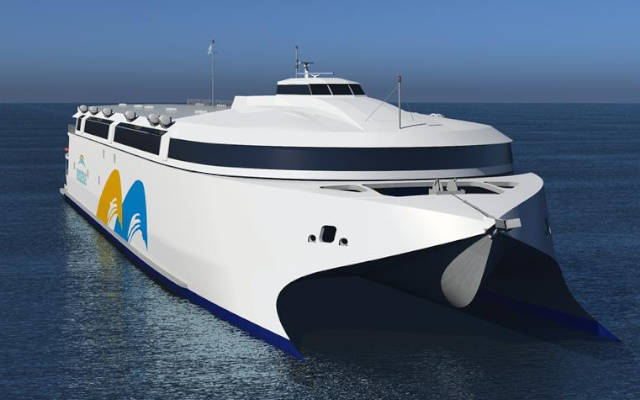 Incat Tasmania lands a record-breaking contract to build two all-electric 129-meter ferries for Denmark's Molslinjen. Each high-speed catamaran will carry 1,483 passengers and 500 cars, powered by a 45 MWh battery. This milestone highlights maritime electrification's role in global decarbonization and marks a major win for Australia's clean tech exports. A bold step toward zero-emission coastal transport.
Incat Tasmania lands a record-breaking contract to build two all-electric 129-meter ferries for Denmark's Molslinjen. Each high-speed catamaran will carry 1,483 passengers and 500 cars, powered by a 45 MWh battery. This milestone highlights maritime electrification's role in global decarbonization and marks a major win for Australia's clean tech exports. A bold step toward zero-emission coastal transport.Nobody Wants Electric Supercars. But Why?
22 Jul 2025 | Synopsis
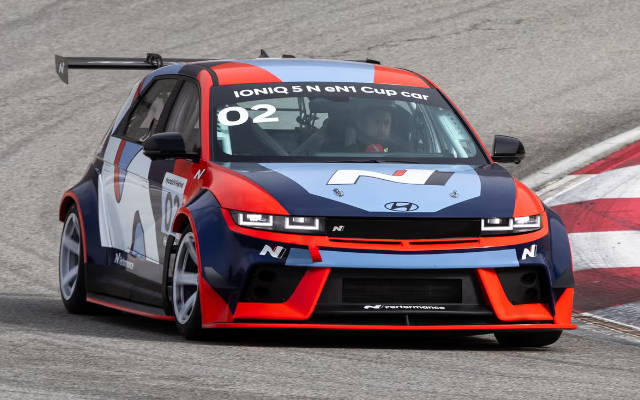 Electric supercars are struggling. With high-performance mainstream EVs like Hyundai's Ioniq 5 N offering 0‑60 mph in ~3.4 sec for ~$68K, buyers don't see value in paying 7‑figure sums for marginal gains. Supercar brands like Rimac, Koenigsegg, Pagani, Ferrari, and Lamborghini report flat demand for full-EV hypercars. Enthusiasts miss engine sound, emotion, and unique tactile feel -EVs excel in speed but lack character."
Electric supercars are struggling. With high-performance mainstream EVs like Hyundai's Ioniq 5 N offering 0‑60 mph in ~3.4 sec for ~$68K, buyers don't see value in paying 7‑figure sums for marginal gains. Supercar brands like Rimac, Koenigsegg, Pagani, Ferrari, and Lamborghini report flat demand for full-EV hypercars. Enthusiasts miss engine sound, emotion, and unique tactile feel -EVs excel in speed but lack character."The EVs We've Lost
22 Jul 2025 | Synopsis
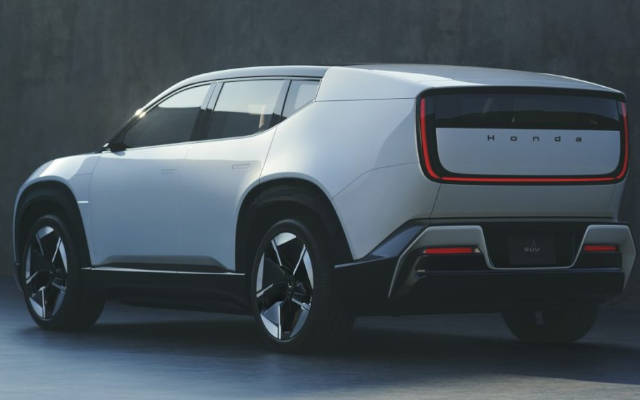 Global automakers - including Honda, Nissan, Mercedes, Ford, Volvo, Maserati, Ferrari, Lamborghini, Porsche and even Apple - have recently canceled or delayed numerous EV programs due to shifting market dynamics like supply chain issues, slowing demand, policy reversals and tariffs. While some see this as a market correction, others view it as strategic adaptation amid volatility.
Global automakers - including Honda, Nissan, Mercedes, Ford, Volvo, Maserati, Ferrari, Lamborghini, Porsche and even Apple - have recently canceled or delayed numerous EV programs due to shifting market dynamics like supply chain issues, slowing demand, policy reversals and tariffs. While some see this as a market correction, others view it as strategic adaptation amid volatility.China's EV Push in Brazil Triggers Labor, Tariff, and Safety Concerns
22 Jul 2025 | Synopsis
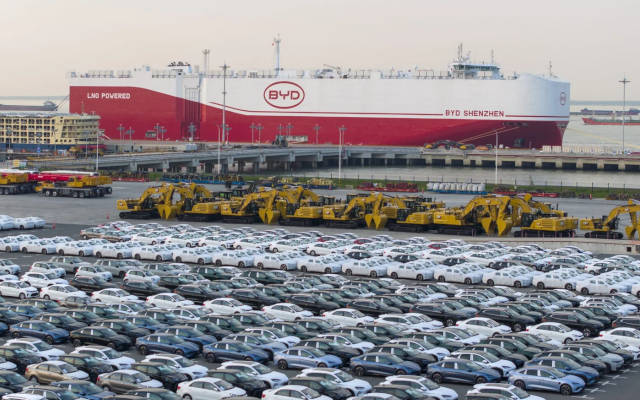 Chinese EV makers like BYD are flooding Brazil with low-cost imports while delaying promised local production. Labor abuses at a BYD factory site and growing concerns about Chinese EV safety in China are fueling backlash. Brazil is weighing tariff hikes to protect jobs and its auto industry. The controversy underscores global scrutiny of China's EV practices as it expands abroad.
Chinese EV makers like BYD are flooding Brazil with low-cost imports while delaying promised local production. Labor abuses at a BYD factory site and growing concerns about Chinese EV safety in China are fueling backlash. Brazil is weighing tariff hikes to protect jobs and its auto industry. The controversy underscores global scrutiny of China's EV practices as it expands abroad.
 Si Exclusive
Si Exclusive
Hydrogen's Flight Path: Fuel Cells, Turbines, and the Economics of Clean Aviation
10 Oct 2025 |  Aviation is shifting from Jet A to four fuel systems: electricity, hydrogen (fuel cell and combustion), SAF, and petroleum. Fuel cells suit short-haul aircraft; hydrogen combustion may power long-range jets. SAF bridges legacy fleets. Hydrogen costs - $5-$7/kg today, possibly $2/kg by 2040 - impact ticket prices and infrastructure decisions. Airport authorities, airlines, and governments will share deployment costs. Each fuel has distinct environmental pros and cons shaping aviation's net-zero future.
Aviation is shifting from Jet A to four fuel systems: electricity, hydrogen (fuel cell and combustion), SAF, and petroleum. Fuel cells suit short-haul aircraft; hydrogen combustion may power long-range jets. SAF bridges legacy fleets. Hydrogen costs - $5-$7/kg today, possibly $2/kg by 2040 - impact ticket prices and infrastructure decisions. Airport authorities, airlines, and governments will share deployment costs. Each fuel has distinct environmental pros and cons shaping aviation's net-zero future.
 11 Oct 2025 04:24:47 UTC |
RECENT PODCASTS
BYD Soars - Cheaper Tesla Models - The Bolt is Back - Rivian
SEARCH RSSTREAM
 48 New Postings In Past 24 Hours
48 New Postings In Past 24 Hours
Category:mobility
Region:Europe
Date:10 Oct 2025
Category:energy
Region:Global
Date:10 Oct 2025
Category:mobility
Region:SoAmerica
Date:10 Oct 2025
Category:energy
Region:NoAmerica
Date:10 Oct 2025
Category:mobility
Region:NoAmerica
Date:10 Oct 2025
Category:finance
Region:AsiaPacific
Date:10 Oct 2025
Category:policy
Region:NoAmerica
Date:10 Oct 2025
Category:finance
Region:NoAmerica
Date:10 Oct 2025
Category:mobility
Region:AsiaPacific
Date:10 Oct 2025
Category:policy
Region:NoAmerica
Date:10 Oct 2025